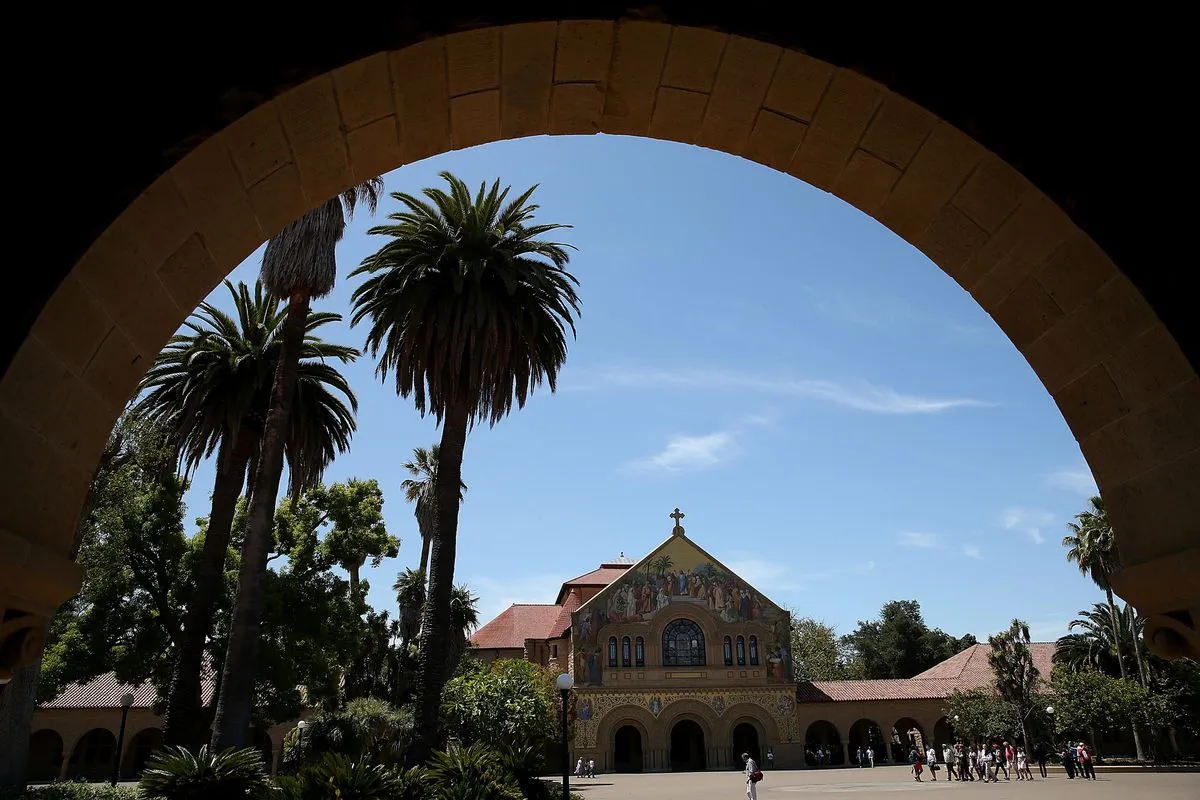Table of Contents
We are two of the Stanford faculty who initiated the letter to the Attorney General advocating the termination of the Department of Justice’s “China Initiative” – a letter that was endorsed by 177 Stanford faculty from all across campus. The arguments we presented were criticized in an Opinion published in The Stanford Review on Sept. 23, 2021. In this response we argue that these criticisms reflect the same misunderstandings of the nature of academic research that are responsible for the deep structural flaws in the China Initiative itself. However, firstly we wish to note that we are proud to see that Stanford does, indeed, provide an environment in which students feel free to think for themselves, rather than to accept uncritically what the faculty asserts. We resonate with the stated goal of the Stanford Review, “to present alternative views on a wide range of issues, create a forum for rational debate on campus, and challenge those who disagree to participate.”
As far as we are concerned, the central point – as articulated in a sentence in our letter that was also quoted in the editorial – is that there is an essential distinction between “the open fundamental research carried out at universities and more applied and proprietary industrial or military research in the commercial sector.” To be more explicit, one can consult the Stanford University Research Policy Handbook of which Sec. 1.4 deals with “Openness in Research.” Here, the introductory paragraph states “That the principle of openness in research - the principle of freedom of access by all interested persons to the underlying data, processes, and to the final results of research - is one of overriding importance. Accordingly, it is the decision of the Senate that this principle be implemented so that no program of research that requires secrecy (as hereafter defined) be conducted at Stanford University, subject to the provisions set forth in Section 4 of the Resolution.” [[1]]
Proprietary information, national security secrets, or any other protected information generated at Stanford cannot be stolen from Stanford laboratories and offices for the very simple reason that such information is not generated on campus. In addition to its role as a bastion of higher education, the University is an institution for the production and dissemination of knowledge for use by anyone and everyone.
It is true that some faculty members have part-time commitments to private companies, or consult with the government – sometimes even on classified matters. However, University regulations – as well as the generally accepted campus culture – require that these efforts be kept separate from any activities carried out at the University. (There is some disagreement among faculty members on how much of such extracurricular, secretive research is consistent with their primary loyalty to their university position – but that is an issue for another day.)
It is possible, as the Opinion asserts, that there is less of a sharply articulated barrier between university research and classified research in Chinese Universities. Many of us have close and productive collaborative relations with colleagues in top Universities in China, and we can certainly vouch for the openness and honesty of the wonderful scientists with whom we interact. They contribute to the progress of science worldwide – benefitting both the US and China. That being said, we do acknowledge that our understanding of the research enterprise in China is far from complete. However, this is not a relevant issue – we do know that research at U.S. Universities such as Stanford does not produce secrets and that collaborations with colleagues in China have been beneficial for advancing research.
Turning to more detailed points: The Opinion claims that the “the China Initiative … has yielded dozens of successful convictions …” -- where “yielded” hosts a link to the China Initiative web site. A thorough reading of this web site indeed reveals dozens of indictments. Thankfully – if one reads the write-up on each of these cases, most of them end with the notation “An indictment merely alleges that a crime has been committed and <<the accused>>, like all defendants, is presumed innocent until proven guilty beyond a reasonable doubt.”
The number of successful convictions has been small. Moreover, most of the people and charges that are listed on the China Initiative web site are unrelated to any University. (These people are charged with offenses such as smuggling rare turtles and stealing information useful for the “identification and treatment of a range of pediatric medical conditions.” These are undoubtedly serious criminal charges that should be pursued, but hardly threats to national security.) It is worth stressing that none of the indictments involving University faculty allege espionage.
A good case in point is the recent case of Anming Hu, an Associate Professor in the Department of Mechanical, Aerospace and Biomedical Engineering at the University of Tennessee, Knoxville (UTK) who was arrested on Feb. 27, 2020 and charged with three counts of wire fraud and three counts of making false statements after many months of FBI surveillance failed to turn up evidence of espionage. He was deemed a flight risk and so was jailed while awaiting trial. In a disgusting show of cowardice, UTK fired Professor Hu while his case was being litigated. The case went through various phases, but finally on Sept. 10 of this year, a federal judge ruled Professor Hu innocent on all charges – and that the charges were without substance. Note that while this investigation was initiated by President Trump’s Department of Justice, the actual prosecution was carried out by the Biden Administration’s DoJ. If it were not for the terrible harm inflicted on Professor Hu, one might consider this a humorous tale illustrating the arrogance and the ignorance of the FBI and the DoJ.
Other points we stressed in our letter seem to us so obvious that they are not worth belaboring. Our country clearly benefits enormously when the most talented and ambitious scientists and scholars from around the world clamor to study or carry out research in our Universities, either over short or long periods of time. We can think of no better way to ensure our continued success as a nation than to welcome with gratitude the ambitious, dedicated individuals who have traditionally been attracted to our country – and in particular to our universities. The China Initiative is manifestly disastrous from this perspective. In his farewell address, President Reagan talked of his vision of the U.S. as a “shining city on a hill.” He said “And if there had to be city walls, the walls had doors and the doors were open to anyone with the will and the heart to get here.”
We believe this is not only an ideal that is shared by Americans across the political spectrum, but also, from a pragmatic perspective, it is key to maintaining our leading role in the production of knowledge and the generation of new ideas.
[1] Section 4 of the Stanford University Research Policy Handbook deals with provisions that allow limited access to information such as that subject to national security or export controls that is generated elsewhere and, while facilitating the research, that a member of the research group who does not have access to this information is not disadvantaged from full participation in the intellectually significant parts of the research nor does this lead to restrictions on publication of the results of the research.









